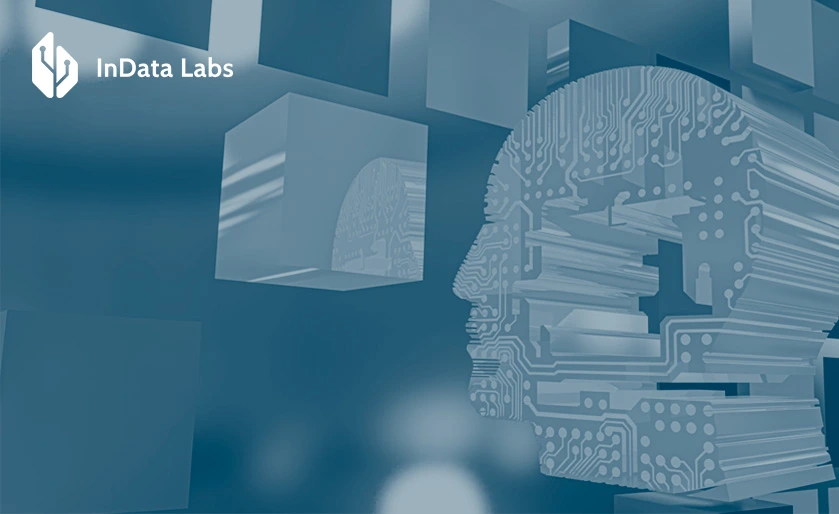In today’s challenging market, businesses are continuously striving to be first on the list and beat rivals. Doubtlessly, the best course of action now is to concentrate on innovation and persistently upgrade commodities and services. Another source can be artificial intelligence for small business. Artificial intelligence has recently come to be recognized as the technology most used to solve a wide range of business-related problems. It’s therefore not surprising that an increasing number of businesses have begun to massively adopt AI software to keep up with the developments.
The reason AI caught on is quite prosaic: it is not simply a trendy term, but a vital tool that may help a business take the lead in the market and reap major profits. AI offers unique functions that may suggest optimal solutions, facilitate processes, and boost experiences for clients.
This article will nose into the necessity of integrating AI in small business workflow and preparing marketing tactics to skyrocket the company’s expansion and make thoughtful relevant decisions.

Source: Unsplash
Why AI in small business?
It’s not only blue-chip companies that have already adopted AI but also small businesses that aim to unleash their full potential. As reported by a recent Microsoft study, more than half of small business owners (56%) say their business could benefit from AI solutions to create more adequate undertaking. The positive mindset is absolutely reasonable: with the help of AI technology, small corporations can eliminate monotonous workflows, accelerate processes, and take conscious measures.
Nowadays AI for small business has become a serious viable aspect to keep up with the level of larger enterprises and tap into new chances for expansion and prosperity. As stated above, AI offers a myriad of benefits that can significantly affect the growth trajectory of small businesses:
Research
AI-driven analytics offer accurate information on customer taste, market dynamics, and organizational efficiency. Moreover, AI-based predictive analytics facilitate accurate demand forecasting, inventory management, and pricing strategies, resulting in optimized operations and better revenue.
Strategic outlook
To maximize the potential outcome, small businesses must have a well-defined AI strategy in place. It aligns with ultimate business goals, ensuring that AI initiatives are targeted and impactful. By having a specific plan, small businesses can make wise decisions regarding AI usage, capital distribution, and risk management. A robust AI strategy considers factors such as budget constraints, resource allocation, data infrastructure, and scalability. It also addresses possible problems, such as data confidentiality, moral considerations, and employee training and upskilling.
Better sales and marketing
By leveraging an artificial intelligence sales assistant and employing artificial intelligence chat software, small businesses can open a multitude of opportunities. These AI-powered tools impact lead generation and conversion rates, provide data-controlled insights and overall meet the clients’ needs. By taking a hands-on approach to incorporating artificial intelligence in business applications, small businesses can capitalize on the potential of AI, undercut their competitors, and seize new market niches.
How can I use AI in my small business?
Implementing AI involves more than just incorporating new technologies. It requires an in-depth grasp of the industry, data infrastructure, and AI algorithms.
Navigating the tricky setting of AI implementation can be daunting for small business owners as they often lack the internal proficiency needed to develop and execute a good AI strategy. Without proper guidance, they may struggle with identifying AI opportunities, integrating AI into current workflows, and ensuring data protection. Engaging the services of AI consulting experts can be a real game-changer.
AI сonsultant as a business booster

An AI consultant serves as a trusted advisor and expert in the field of AI. They bring specialized competence to assist small businesses in the subtleties of AI implementation.
Here are some key roles an AI consultant can play:
Assessing business needs and opportunities
An AI consultant can evaluate a small business’s unique challenges, goals, and opportunities. They conduct a thorough analysis to identify areas where AI can have the most meaningful effect, helping businesses prioritize and focus their AI initiatives for maximum outcomes.
Developing an AI strategy
As written above, strategy plays a big role in a business’s success. Simply described, artificial intelligence in business is a blueprint for how a company will use AI tools to advance its strategic goals and gain market share.
AI consultant’s expertise is a guiding light, directing efforts towards the most valuable and relevant AI business use cases and applications. Consultants can help small businesses make proactive choices for raising their business prosperity through the examination of consumer policies and related obstacles.

Source: Unsplash
The long-term advantage to the organization is that AI consultants understand that each business is unique and has distinct requirements. They can frequently suggest certain modifications or adjustments that will solve the key difficulties confronting the company in the future and leverage opportunities for growth that align with the business’s budget, scalability, and long-term goals — and it is a much cheaper and more effective solution than a ready-made one, which may not be suited for your exact situation.
Supervising
AI models require continuous overseeing and optimization to maintain their accuracy and relevance. An AI provider/consultant can assist in setting up surveillance mechanisms, analyzing performance metrics, and refining models over time as well as uncover any biases or flaws in AI models by periodically evaluating them and making required improvements.
Training and change management
Consultants offer training programs to train personnel and guarantee a smooth transition to AI-powered operations. They assist in change administration, addressing resistance to altering and promoting a culture of AI adoption within the organization.
Cost and time efficiency
While AI implementation may seem costly, consultants can help small businesses optimize their investments. They recommend customized cost-effective solutions that accommodate business’s needs and assist in negotiating contracts, ensuring maximum return on investment and saving time and resources.
Mitigating risks
AI implementation involves potential risks, such as data privacy breaches and biased algorithms. An AI consultant helps small businesses navigate these risks by implementing robust safeguards and ensuring ethical AI practices.

Source: Unsplash
Is using AI in small business pricey?
Implementing AI in a small business does involve costs, but they can vary depending on several factors:
Infrastructure and hardware
AI implementation may require specific hardware, such as high-performance servers to handle complex computations. While these hardware costs can be significant, the cloud computing model has made AI infrastructure more accessible and affordable. Small businesses can leverage cloud-based AI platforms, paying only for the resources they use, minimizing upfront infrastructure investments.
Software and tools
Means of AI are essential for developing and deploying its models. The charge for applying these tools can vary widely, ranging from open-source options to commercial platforms. However, small businesses can develop tools that adapt to their budget and specific requirements, as they’re far more productive and savvy than already-made ones.
Data compilation
Outstanding data is crucial for training AI models. Providing data can be labor-intensive and take a considerable amount of time, potentially adding to the costs. Nonetheless, small firms can make the most of their data by leveraging existing data assets and employing preparation procedures.
Maintenance and upgrades
Doubtlessly, AI models require ongoing maintenance and updates to remain effective. This includes monitoring performance, refining algorithms, and adjusting to evolving company standards. While these activities may incur costs, they are essential for ensuring optimal AI performance and long-term business benefits.
Start small and prioritize
It’s better to begin by identifying specific areas where AI can have the most substantial effect on your business goals. Focusing on targeted use cases that align with your resources and priorities and starting small allow for controlled experimentation, cost containment, and a better understanding of AI’s value before scaling up.

Source: Unsplash
Leverage cloud-based services
Cloud computing vendors offer AI services and infrastructure development, eliminating the need for upfront investments in hardware and cutting down practical costs. Cloud providers offer scalable AI solutions, allowing small businesses to access powerful AI capabilities without the need for extensive infrastructure. At this stage, it’s extremely vital to find a reputable qualified vendor that will scrutinize your business state and suggest the correct software for it.
Collaborate and seek expertise
Working with a vendor allows you to find solutions to business problems, develop expertise, educate your staff, and ensure you have solid technological assistance.
To draw the line
Even if launching AI in small enterprises relates to expenses, the perception that using AI is inherently pricey is not entirely accurate. Small firms can embrace AI without suffering expensive costs by recognizing expense variables, implementing budget-effective strategies, and harnessing available resources.
With careful planning, prioritization, and a focus on specific business needs, AI can be an invaluable tool for small business growth, enabling enhanced efficiency, improved decision-making, and superiority over opponents in the market.
Small businesses can no longer afford to overlook the transformative potential of AI. Embracing AI today will pave the way for a more competitive, resilient, and prosperous future for small businesses in the evolving virtual arena.
Integrate AI into your organization
Let AI empower you to become a leader in your field. Reach out today for a consultation with a specialist.
FAQ
-
It’s vital to pinpoint areas where AI can simplify workflows or improve managerial decisions, select the appropriate AI tools, embed them into present platforms, educate staff, and regularly track and accelerate the process.
-
AI chatbots for customer support, and handling inquiries; Automated Bookkeeping and Accounting; AI-powered inventory management; Email Marketing; Predictive Analytics for Sales and many more.
-
Automation, efficiency, better customer experiences, data-driven insights, cost savings, and competitive advantage are all ways that AI benefits small businesses.
-
According to a Forbes survey, 26% of small businesses say they are already investing in AI, while 44% more say they want to start using it soon, a figure that is suggestive of a sector where AI is poised to grow.
-
When used properly and responsibly, AI may be valuable to the business, offering perks like efficacy, better choice-making, and unprecedented earning potential.



